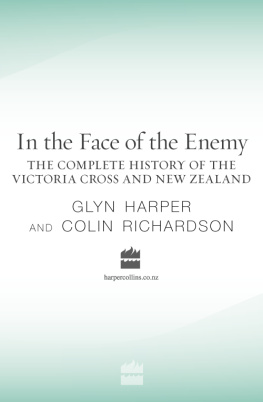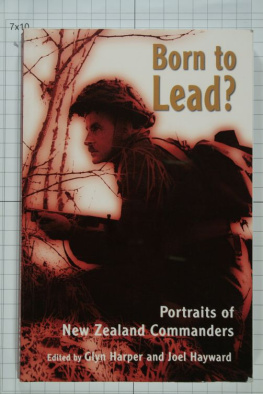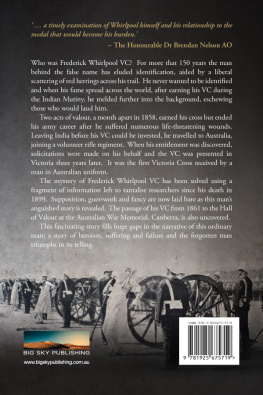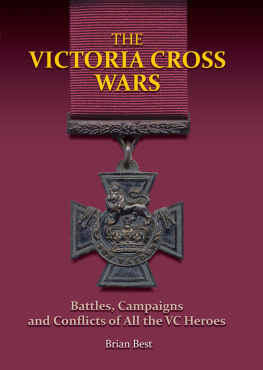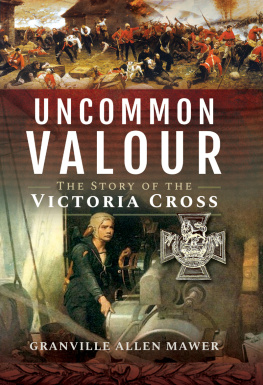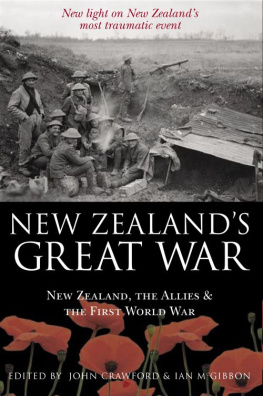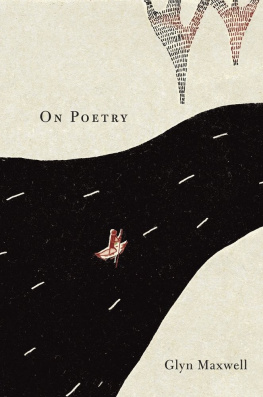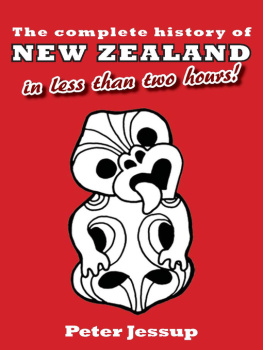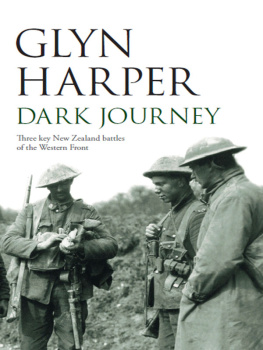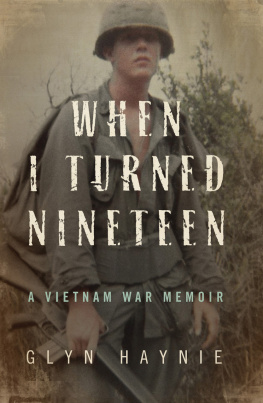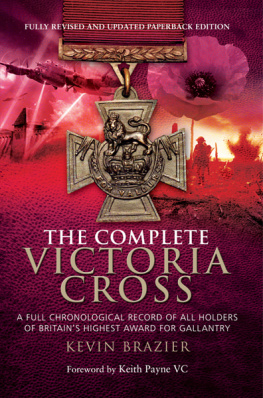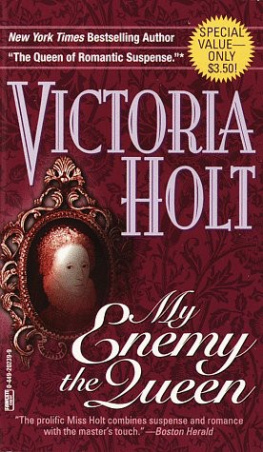Glyn - In the Face of the Enemy - the Complete History of the Victoria Cross and New Zealand
Here you can read online Glyn - In the Face of the Enemy - the Complete History of the Victoria Cross and New Zealand full text of the book (entire story) in english for free. Download pdf and epub, get meaning, cover and reviews about this ebook. year: 2007, publisher: HarperCollins, genre: Politics. Description of the work, (preface) as well as reviews are available. Best literature library LitArk.com created for fans of good reading and offers a wide selection of genres:
Romance novel
Science fiction
Adventure
Detective
Science
History
Home and family
Prose
Art
Politics
Computer
Non-fiction
Religion
Business
Children
Humor
Choose a favorite category and find really read worthwhile books. Enjoy immersion in the world of imagination, feel the emotions of the characters or learn something new for yourself, make an fascinating discovery.
- Book:In the Face of the Enemy - the Complete History of the Victoria Cross and New Zealand
- Author:
- Publisher:HarperCollins
- Genre:
- Year:2007
- Rating:3 / 5
- Favourites:Add to favourites
- Your mark:
- 60
- 1
- 2
- 3
- 4
- 5
In the Face of the Enemy - the Complete History of the Victoria Cross and New Zealand: summary, description and annotation
We offer to read an annotation, description, summary or preface (depends on what the author of the book "In the Face of the Enemy - the Complete History of the Victoria Cross and New Zealand" wrote himself). If you haven't found the necessary information about the book — write in the comments, we will try to find it.
Glyn: author's other books
Who wrote In the Face of the Enemy - the Complete History of the Victoria Cross and New Zealand? Find out the surname, the name of the author of the book and a list of all author's works by series.
In the Face of the Enemy - the Complete History of the Victoria Cross and New Zealand — read online for free the complete book (whole text) full work
Below is the text of the book, divided by pages. System saving the place of the last page read, allows you to conveniently read the book "In the Face of the Enemy - the Complete History of the Victoria Cross and New Zealand" online for free, without having to search again every time where you left off. Put a bookmark, and you can go to the page where you finished reading at any time.
Font size:
Interval:
Bookmark:
To all New Zealand service personnel who have ever been in the face of the enemy.
Peace, not war, shall be our boast,
But, should foes assail our coast,
Make us then a mighty host,
God defend our free land.
Lord of battles in Thy might,
Put our enemies to flight,
Let our cause be just and right,
God defend New Zealand.
The seldom-sung third verse of God Defend New Zealand. Words by Thomas Bracken.
Who would true valour see, Let him come hither.
John Bunyan,
The Pilgrims Progress
C ourage binds the Commonwealth together throughout history and ensures we never forget the extraordinary military contribution Great Britain received from her friends and partners in this grand alliance of nations from across the world. Through two world wars and a myriad of lesser but nonetheless deadly conflicts, Britain has depended on her friends for support and has received it with ungrudging generosity. The commitment of New Zealand, despite the modest size of her population, has stood out amongst other nations and so, especially, has the courage of her servicepeople. I know for I have had the privilege of fighting alongside New Zealanders in many wars and conflicts from Korea to the Gulf War of 1991.
The inherent bravery, companionship, humour and loyalty of this redoubtable people have stood me in equal good stead, as it has my own country.
Of all the qualities I came to admire in my New Zealand comrades in arms, their daring and audacity stand out and always prevailed whenever the fighting was at its most intense. It surprises me not at all that New Zealand has won a greater number of Victoria Crosses, as a proportion of its population, than any other country in the world including Great Britain. Flying Officer Lloyd Trigg VC, DFC is the last ever member of the New Zealand armed forces who will win this unique award, which has now been replaced by the Victoria Cross of New Zealand. Appropriately at this moment in history as we celebrate the 150th anniversary of Queen Victorias promulgation of the British Victoria Cross, this book records for history those gallant New Zealanders of past conflicts who were recipients of the worlds most distinguished recognition of valour in the face of the enemy.
Sir Winston Churchill remarked, Courage is rightly esteemed the first of human qualitiesbecause it is the quality which guarantees all other. Each of us possesses a bank of courage. Some have a significant credit balance, others little or nothing; but in war we are all able to make the balance last longer if we have training, discipline, patriotism and faith. With these attributes we can manage our fear while always remembering that on the battlefield unfairness and luck are ever present arbiters. However, our credit balance depletes as we make demands of it and, as in the heat of battle, we take risks. When a persons balance drops into the red then he is on the borders of a breakdown and a wise commander will recognise this and see that he is rested before he becomes a casualty of fear and stress.
Courage is a quality we all admire and a goal to which we all aspire; it is an essential ingredient at all rank levels in war. Each person possesses it in some measure, but our personal bank varies between individuals and no man knows his credit limit until tested. War offers people opportunities to test themselves to their limits. The award of medals recognises a persons courage in battle, but gallantry is not restricted to those who are decorated, still less to holders of the Victoria Cross. Holders of this award are deeply conscious of this recognition, which leads, almost without exception, to them becoming the most modest of people; they are ordinary people who do not wish to stand out in society and they are the first to salute those many sailors, soldiers and airmen who never receive recognition but put their lives on the line or die and without whom no commander is able to fight his battle or win his war. Each one is a hero.
Charles Upham, a dedicated farmer from Christchurch, in peacetime put his animals and his land before himself. In the Second World War he became a fierce patriot whose loyalty determination and singleness of purpose personified New Zealanders in combat, and he is unique in the world of gallantry for being the only combatant in history to win two Victoria Crosses; yet he epitomises VC winners by his modesty. His favourite weapon was the grenade; he would carry them by the sackful and returned to the very forefront of the battle time and again and despite severe wounds and illness. He was the sort of man that any fighting soldier aspires to be but few indeed achieve his levels of bravery and leadership in battle.
In the Face of the Enemy is a tribute to the nations courage; a nation it has been my proud privilege to serve alongside. One commentator remarked on the death of Charlie Upham, New Zealanders like to cut their heroes down a peg or two, but in Charles Upham we found a man with whom it was difficult to find fault. I know Upham VC and Bar would be embarrassed by such selective judgement and I commend readers of these national heroes to reflect on the words of Randolph Churchill:
Your glory is enshrined forever on the imperishable plinth of your achievements.
Thats how I see them all.
Peter de la Billire
January 2006
Some signal act of valour
T he Victoria Cross (VC) is a very special award. It is the highest of all honours that the monarch of the British Commonwealth can bestow, and it takes precedence over all other honours, awards and decorations, including knighthoods. Edward, the Duke of Windsor, when Prince of Wales, recognised the paradoxical nature of the VC award. He proclaimed it to be the most democratic and at the same time the most exclusive of all orders of chivalrythe Most Enviable Order of the Victoria Cross.
The original Royal Warrant for the VC, signed by Queen Victoria on 29 January 1856, specified that the award was to be made to those officers and men whoin the presence of the enemy shall have performed some signal act of valour or devotion to their country. By a consolidating warrant of 1920 the criteria for winning a VC was redefined to read for most conspicuous bravery or some daring or pre-eminent act of valour or self-sacrifice or extreme devotion to duty in the presence of the enemy.
When this country instituted the Victoria Cross of New Zealand in 1999 the criteria remained similar to that of the British VC, but the wording changed. To win the VC of New Zealand a person recommended has to have demonstrated most conspicuous gallantry, or some daring or pre-eminent act of valour or self-sacrifice or extreme devotion to duty in the presence of the enemy There are two constants in these changes. First, the award is only given for a pre-eminent act of valour, for an act of outstanding bravery at great risk to ones life. Second, that act of valour needs to take place in the presence of the enemy. This was a stipulation in the original VC warrant and it remains in the warrant for the VC of New Zealand, although in the latter award the enemy could also be a belligerent. This subtle difference permits an award to be made on military operations where there has not been a formal declaration of warwhat the USA military calls Operations Other Than War (OOTW). Peace-enforcement operations, for example, would be covered under this change of wording. While some awards prior to the 1920 warrant were made that did not involve being in the presence of the enemy, all of the VCs won by New Zealand service personnel and by those people with a New Zealand connection have fallen into that category. All were awarded for some signal act of gallantry in the very face of the British Empires or Commonwealths enemies, hence the significance of this books title.
Next pageFont size:
Interval:
Bookmark:
Similar books «In the Face of the Enemy - the Complete History of the Victoria Cross and New Zealand»
Look at similar books to In the Face of the Enemy - the Complete History of the Victoria Cross and New Zealand. We have selected literature similar in name and meaning in the hope of providing readers with more options to find new, interesting, not yet read works.
Discussion, reviews of the book In the Face of the Enemy - the Complete History of the Victoria Cross and New Zealand and just readers' own opinions. Leave your comments, write what you think about the work, its meaning or the main characters. Specify what exactly you liked and what you didn't like, and why you think so.

